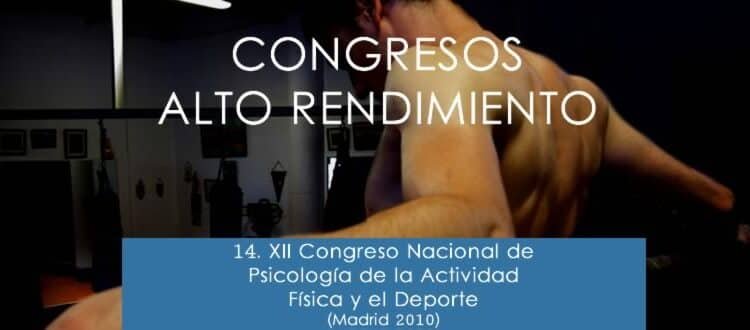Parental and Peer Influence on Children’s Psychosocial Development Through Sport
The sport involvement of children and youth provides an important environment through which young people are presented with considerable opportunities for psychological and social development. Parents and peers are important contributors to this development because they can affect the nature of sport involvement for the young person as well as the quality and types of opportunities and experiences that become available to youth through their participation. In addition, parents and peers are instrumental in shaping the values, beliefs, expectancies and norms that young athletes hold about their involvement in this context and which will guide their continued participation. A primary theme that will be present in this paper is that the psychological and social development of youth through sport is dependent upon the presence of an approach match between the developmental readiness and needs of the youngster with the opportunities to meet these psychological and social needs in the sport milieu.
This paper will direct specific attention to the roles of parents and peers in affecting psychological and social developmental outcomes for youth sport participants. Traditionally, much more research attention has been devoted to understanding parental forms of influence as opposed to peer influence and, as a consequence, our knowledge base is much more extensive with regard to parental forms of influence. However, a growing body of knowledge underscores the crucial role assumed by peers in the sport environment. It is also imperative that we maintain a developmental perspective from which to examine the impact of parents and peers because the influence of each set of socialization agents is partially dependent upon a young person’s current stage of development. In this regard, parents typically have much greater relative influence during the early and middle childhood years with peer forms of influence becoming much more salient and important during later childhood and through adolescence.
Parental and peer influence can extend across a variety of psychological and social outcomes for youth. With regard to psychological outcomes, three important categories of influence include self-perception, affective/emotional experiences and motivational outcomes that can greatly affect the young person’s current and continued interest in sport participation. With regard to social outcomes for youth sport participants, significant others can shape opportunities for social skill development (e.g., perspective-taking and conflict resolution skills) and provide youth with feelings of social acceptance and social rejection that will affect the quality and extent of continued sport involvement. In terms of the psychological outcomes mentioned, knowledge about social influence upon self-perception, affective/emotional and motivational outcomes of youth in sport is highly important in understanding who will persist in sport and who is likely to discontinue their sport involvement. Important self-perception outcomes include perceptions of competence and self-efficacy which are known to be shaped through social interaction opportunities with parents and peers (as well as coaches). The primary theoretical perspective that will be adopted to discuss this topic is Eccles’ expectancy-value model which has been used to explain how parental belief systems translate to parental behavioral practices through which children are eventually likely to adopt their parents’ beliefs through a “self-fulfilling prophecy”. This model has been used in sport to explain how parents provide opportunities and encouragement to their sons and daughters in relation to parents’ own expectancies that the child will have success in a given domain as well as in relation to the value (importance) that parents ascribe to particular domains of achievement. Both expectancies and values can be affected by underlying gender stereotypes as well. A growing body of knowledge exists that indicates that children’s emotional experiences in sport (e.g., anxiety, enjoyment, and burnout) are related to the social context of their participation and that parents are particularly influential in this sense. Researchers interested in the motivational characteristics of sport involvement have increasingly focused attention upon the intrinsic and extrinsic nature of participatory involvement. As a consequence, theoretical perspectives such as self-determination theory (Ryan & Deci, 2000) have sparked rapidly growing recent interest in understanding the social precursors of both intrinsic and extrinsic motivation of youth in the sport context. In addition to the three psychological dimensions of parental and peer influence that have been mentioned, the social development of youth in sport can also be greatly affected by the nature and quality of youth’s experiences in this domain. Two important categories of social development for youth include the development of social skills as well as the opportunities that are present for social acceptance and friendship formation or, conversely, social rejection. In terms of social skills, the sport context provides an ideal venue for the development of perspective-taking and conflict resolution abilities although these outcomes are still infrequently addressed in the research base. Sport inherently involves the goal-directed collaboration and interaction of teammates and such interaction cannot be effective without these perspective-taking capacities. However, the opportunities that are available for effective perspective-taking are highly dependent upon the specific context of involvement and the opportunities available for autonomous action that are dependent upon social relationships with both teammates and coaches. The youth sport environment also provides abundant opportunities for youth to experience social acceptance as well as social rejection. Within psychology as a whole, a rapidly growing body of knowledge has focused on the role of peer acceptance and rejection outcomes on young people’s ongoing development with particular attention dedicated to understanding how these experiences influence motivational, affective, and mental health outcomes for youth. The youth sport context is increasingly recognized as a highly important and appropriate domain for understanding the psychosocial development of children and youth. Parents and peers are instrumental in shaping the quality of this development and the purpose of this paper will be to address current knowledge on the topic with an additional focus upon anticipated future directions for research on this important topic.






